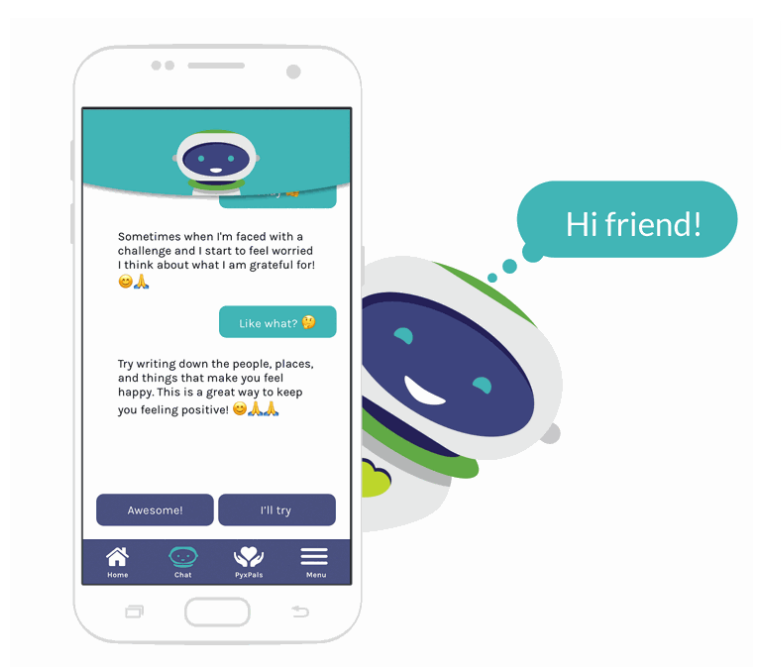When COVID-19 swept across the country earlier this year, it exacerbated an ongoing epidemic growing in recent years: isolation. Sociologists and public health experts have tracked a “loneliness epidemic” affecting the mental and physical health of a wide range of Americans. And while there may be nothing quite as effective as in-person interaction, for the socially distant time being, one local company is offering a safe technological alternative.
While Pyx Health entered the market in 2018, the company recently received a major boost when it earned $3.5 million in funding from Bluestone Ventures, Arizona Founders Fund, LifeLock co-founder Todd Davis, Holualoa Companies and others. According to Pyx Health founder and CEO Cindy Jordan, this funding will help the company expand its national footprint.
“It really is about our vision, which is to treat anyone who suffers from chronic loneliness,” Jordan said. “We don’t treat loneliness like a chronic condition, like diabetes or COPD, but it is. And we as a healthcare industry need to start getting there. When you make people less lonely, their health improves.”
For Jordan, the goal to reduce loneliness has a personal connection. The concept materialized when a family member suffering from bipolar disorder suffered an intense decline that resulted in being admitted to an inpatient facility.
“When we got through all of that I looked back and wondered what was missed,” Jordan said. “What are signs before all of this terrible stuff? And it really was that she started to isolate and feel chronically lonely. That’s when I started looking around to see what people were doing inside healthcare to solve this problem, and the answer was basically nothing.”
Jordan began working with a simple application to monitor how Pyx users are feeling. However, early system tests made Jordan realize the program couldn’t be boring, which is where the artificial intelligence came in. Nicknamed Pyxir, the AI chatbot interacts with users to discuss moods and offer self-management tools in a “deliberately non-clinical” fashion.
“We need a personality if we’re going to treat the human condition of loneliness,” Jordan said. “But at the same time, we need technology, we need to be scalable. So we needed to put something in the technology that was human-like.”
Pyx Health’s monitoring utilizes the University of California – Los Angeles’ Loneliness Scale, where respondents answer questions based on their current mood and broader disposition. Pyxir also examines more unique and circumstantial aspects, such as if the user is on the app late at night, which can signify extended loneliness.
However, Jordan admits “a robot can really only do so much,” which is where Pyx Health’s team comes into play. Should a user’s answer indicate a heightened level of loneliness, they will receive a call from an employee. This is why Pyx maintains they’re not simply a tech company, but a combination of artificial intelligence and human intervention.
“For the people in our company, the idea is not to be a doctor, but to literally be a companion to the people who are in trouble on the app,” Jordan said. “There’s no doctor who can take 30 minutes to be with you just to make sure you feel better, that’s not what our healthcare is built to do.”
For Americans, loneliness can have tangible health effects; according to a 2018 report by the National Institute for Health Care Management, patients who report feeling lonely or have “poor social relationships” are at a heightened risk for coronary heart disease, stroke, high blood pressure and the “progression of frailty.” NIHCM estimates these combined burdens result in a $6.7 billion impact in annual federal healthcare spending.
Beyond this latest round of local funding, Pyx hopes to expand past their primary user base of Medicare and Medicaid recipients, and move into the commercial and employer market.
“I say this all the time, but I really mean it: There is no better place to start a business than Arizona,” Jordan said. “I feel very fortunate to be doing this work in Arizona, particularly in Tucson. If I weren’t here, I wouldn’t have the funding or the talent that I do.”

